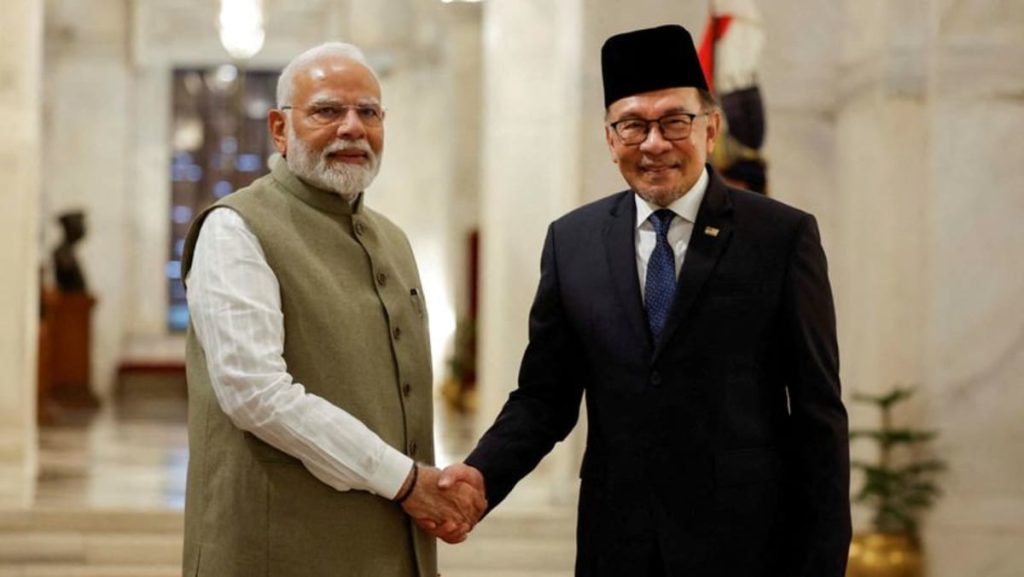Prime Minister Narendra Modi of India and his Malaysian counterpart have agreed to boost cooperation in various areas such as semiconductors, financial technology, and defence production. This comes after relations between the two countries soured in late 2019 due to remarks made by Malaysia’s then-prime minister, Mahathir Mohamad, regarding India’s removal of autonomy in Kashmir, its only Muslim-majority region. Additionally, this strained relationship had a negative impact on India’s purchases of Malaysian palm oil. However, the leaders have now decided to elevate their cooperation to a ‘Comprehensive Strategic Partnership,’ with Malaysia having invested US$5 billion in India over the past year.
In order to increase cooperation in areas requiring new and modern technology such as semiconductor, fintech, defence industry, AI, and quantum technology, both countries are striving to strengthen their partnership. It was mentioned that bilateral trade between India and Malaysia has been conducted in their respective currencies – the rupee and ringgit. India has been working towards establishing the rupee as a more widely accepted currency, especially in light of sanctions on countries like Russia which highlight its heavy reliance on the US dollar. Both countries are now looking to enhance their collaboration and explore new opportunities for growth and development across various sectors.
Malaysian Prime Minister Anwar Ibrahim highlighted the need to reinvigorate relations with India in all fields and expressed his eagerness to further explore the areas of cooperation between the two countries. While specifics regarding the ‘Comprehensive Strategic Partnership’ were not explicitly mentioned, it is clear that both leaders are committed to strengthening ties and expanding their engagement in a range of key sectors. The decision to elevate cooperation signifies a willingness to move beyond past disputes and work towards a more robust and mutually beneficial relationship that will benefit both India and Malaysia.
Both leaders refrained from taking questions from the media following their meeting, indicating a focus on the discussions and agreements reached during their interaction. The significance of the meeting lies in the potential for increased collaboration and investment between India and Malaysia, particularly in emerging technologies and industries. By emphasizing the importance of cooperation in areas such as semiconductors, fintech, and defence production, the leaders are signaling a commitment to harnessing the potential for growth and innovation in their partnership.
As India works towards diversifying its trade relationships and boosting investment in key sectors, partnerships with countries like Malaysia become crucial in achieving these goals. The focus on strengthening cooperation in technology-intensive sectors highlights both countries’ recognition of the importance of innovation and modern advancements in driving economic growth. With Malaysia’s investment in India and the potential for further collaboration in various fields, the ‘Comprehensive Strategic Partnership’ aims to deepen ties and unlock new avenues for growth and development for both nations.
In conclusion, the meeting between Prime Minister Narendra Modi of India and Malaysian Prime Minister Anwar Ibrahim underscores a commitment to enhancing cooperation and expanding engagement between the two countries. By prioritizing areas such as semiconductors, fintech, and defence production, India and Malaysia are poised to leverage each other’s strengths and explore new opportunities for partnership. The decision to elevate their cooperation to a ‘Comprehensive Strategic Partnership’ reflects a shared vision for a stronger and more diversified relationship that will benefit both nations and facilitate mutual growth and development.















